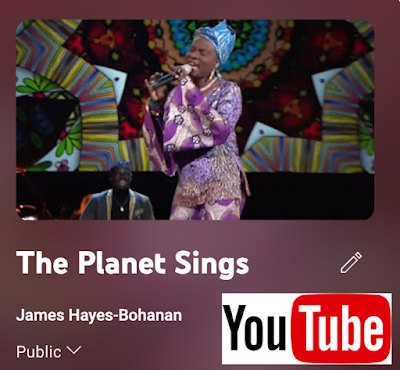I often say that "It's what you learn after you know it all that counts." When I decided to repeat it here, I decided I should find out who said it. And I learned that it was basketball coach John Wooden, who apparently learned and taught many things in his 99-plus years.
I was reminded of this aphorism because I grew up Baptist -- very Baptist -- and therefore know the song "Amazing Grace" quite well, and I know something about its origins and context. But in 12 minutes with NPR journalist Samantha Balaban and historian James Walvin, I learned quite a bit more.
They discuss how Walvin decided to write Amazing Grace: A Cultural History of the Beloved Hymn, and play excerpts from several notable recordings -- including a very surprising one that was his real impetus. I won't spoil this, but I will advise that I listened to this story twice (so far) and was moved to tears both times. The discussion begins with the sonorous tones of the great Paul Robeson and includes Detroit legend Aretha Franklin as a pivotal figure in the history of the hymn.
 |
| My search for an image of Robeson led me to Rutgers University, which remains proud of this 1919 graduate, only the 3rd African American to attend. |
At this point, readers might be asking what this has to do with a class in World Music. This song, after all, has just about the deepest possible roots in U.S. culture, and world music is sometimes describes as "local music from out there."
The story is included here for a few reasons. First, it is an excellent example of the work of using music to explore cultural geography. Second, it reminds us that no single song fully can represent a place. Those who know the United States will recognize that this sheds important light on some aspects of the country but by no means all.
Third and perhaps most importantly, it provides a perfect opportunity to discuss whether. world music encompasses the Gospel, Motown, Jazz, or other music of importance to this country's African diaspora.
Lagniappe
As the interview makes clear, this hymn has been recorded countless times, so it is not surprising that my personal favorite was not included. I remember being truly astonished the first time I heard the 1997 recording by LeAnn Rimes, who was only 15 years old at the time. She captured Amazing Grace with amazing gravitas.
But first: we must hear -- and watch! -- Aretha Franklin's 1972 recording in Los Angeles and her 2015 tribute to her friend Carole King at the Kennedy Center Honors.






